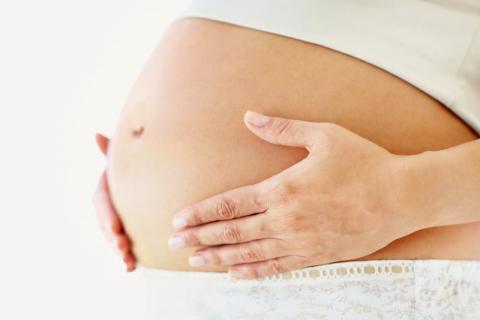Saving lives and improving care for mothers and babies

A conference will take place tomorrow (Thursday 22 January) to review how care for mothers and babies has improved in the UK, and what the health service can do to further reduce the number of deaths of mothers during pregnancy and those child deaths associated with Congenital Diaphragmatic Hernia.
The conference is being organised by the Northern Ireland Maternal and Child Health office (NIMACH), part of the Public Health Agency (PHA), and MBRRACE-UK, and will bring together healthcare professionals to review the latest ‘Saving Lives, Improving Mothers’ Care’ report and the ‘UK-wide confidential enquiry into the management of Congenital Diaphragmatic Hernia’.
Maternal death
Dr Carolyn Harper, Director of Public Heath with the PHA, said: “The conference will provide an opportunity for healthcare professionals involved in maternity care to review findings and recommendations from these reports so we can learn lessons to further improve maternity care.
“The good news is that giving birth in the UK is safer than ever. Maternal deaths in the UK have dropped from 11 per 100,000 women giving birth in 2006–08 to 10 per 100,000 women giving birth in 2010–12. Progress has been made on reducing deaths resulting directly from pregnancy, with reduced rates of thrombosis, haemorrhage and pre-eclampsia.
“This is very positive news. The fact that the maternal mortality rate continues to come down at a time when we are seeing greater numbers of births in the UK and more complex pregnancies shows the dedication of the many doctors, nurses, midwives and other health professionals in improving maternity care.
“However, the death of any mother is a tragedy, and while much has been achieved, there is always more that can be done to improve the care of future mothers and babies.
The ‘Saving Lives, Improving Mothers’ Care’ report highlights the importance of the flu vaccine for pregnant women: ‘One in 11 of the women in the report who died did so from flu. More than half of these women’s deaths could have been prevented by a flu jab.’
Dr Harper continued: “Pregnant women are more likely to have serious illness if they catch flu; there are also risks of complications for the baby, including miscarriage and premature labour. Pregnant women are invited for the flu jab by their GP at all stages of pregnancy to help protect them and their unborn baby. I would urge all pregnant women who have not yet had the vaccine to arrange to get it as soon as possible by contacting their GP’s surgery.”
The report also highlighted that around a quarter of maternal deaths were caused by sepsis, a severe infection causing widespread inflammation throughout the body. It can develop very quickly and it is essential that the symptoms are recognised as early as possible.
In Northern Ireland, the HSC Safety Forum, in collaboration with Obstetric and Midwifery staff, has developed a regionally-agreed Obstetric Early Warning Score chart to provide a standardised approach to the documentation of observations. This work will support healthcare professionals to act quickly and remain vigilant in recognising and managing infection.
The conference will be attended by Chief Medical Officer, Dr Michael McBride. Welcoming the publication of this report, Dr McBride said:
“The death of any woman during or shortly after her pregnancy is a tragedy and is devastating for the families affected, but fortunately it is now very rare in the UK. This is in some part due to the Confidential Enquiry into Maternal Deaths (CEMD), set up around 60 years ago to address the high maternal death rate at that time. Over the years, lessons have been learned and we have seen a steady fall in the maternal death rate.
“The report found that more than half of the women who died from flu did so after a vaccine became available. These are potentially preventable deaths. While uptake of the flu vaccine here in Northern Ireland was over 58% in the year ending April 2014, it remains a priority to increase immunisation against seasonal flu during pregnancy.
“We are seeing greater numbers of births, as well as more complex pregnancies, in the UK, so the continued drop in the maternal death rate shows the dedication of our health professionals to improving maternity care. However, the report also highlighted that a quarter of women who died did not receive a minimum level of ante-natal care, so we must continue to learn lessons and implement recommendations to support to support the delivery of safe, equitable and high quality patient centred care for all women.”
Congenital Diaphragmatic Hernia
The findings of a confidential enquiry into the care received by babies with Congenital Diaphragmatic Hernia (CDH) will also be shared. CDH affects up to 400 pregnancies annually in the UK and results from a failure of normal development of a baby’s diaphragm early in pregnancy. Babies born with CDH have a high risk of serious illness or death.
Dr Harper said: “The report, which reviewed the care of 57 babies with CDH across the UK, found significant variation in the management of these cases. Included in the report’s recommendations is a call for services to be more patient-centred, according to the mothers’ and babies’ medical and surgical needs. The conference will allow us to share experiences and learn from models elsewhere in the UK.
“The PHA hopes that the event will provide an opportunity for a wide range of professionals involved in maternity services to gain a greater understanding of the issues surrounding maternal death and how we can work together to improve perinatal care.”
